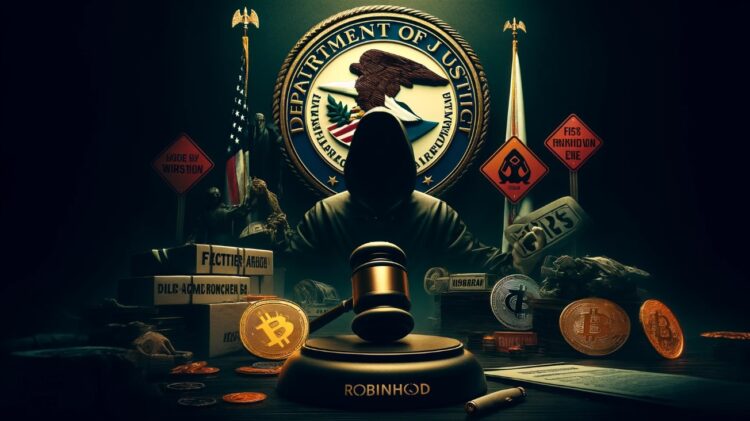Do Kwon, the renowned South Korean cryptocurrency entrepreneur and co-founder of Terraform Labs, recently made headlines by pleading not guilty to a series of criminal fraud charges in a Manhattan federal court. This pivotal moment in his legal journey comes after his extradition from Montenegro, where he was detained for over a year. At the heart of the case is the dramatic collapse of TerraUSD and Luna (LUNC), which collectively incurred losses estimated at $40 billion in 2022.
Legal Proceedings: Kwon Ordered To Remain In Custody
Federal prosecutors have brought forth a comprehensive nine-count indictment against Kwon, accusing him of a range of offenses including securities fraud, wire fraud, commodities fraud, and conspiracy to commit money laundering. These serious allegations underscore the gravity of the situation facing the cryptocurrency entrepreneur.
In a recent court appearance, Kwon, dressed in an olive green long-sleeved shirt and black sweatpants, was seen with his lawyer, Andrew Chesley. Notably, Chesley indicated that they would not be seeking bail at this time. Consequently, US Magistrate Judge Robert Lehrburger ordered Kwon to remain in custody. Kwon left the courtroom with a copy of the 79-page indictment and is scheduled to return for another hearing on January 8.
The Fallout From Do Kwon’s Alleged Fraud and Market Manipulation
In June, Kwon reached a civil settlement with the US Securities and Exchange Commission (SEC), agreeing to pay an $80 million fine and accepting a ban from participating in cryptocurrency transactions. This settlement was part of a larger $4.55 billion resolution related to alleged misconduct in the management of Terraform Labs.
The indictment outlines how Kwon allegedly misled investors regarding the stability of TerraUSD, a stablecoin designed to maintain a value of $1. In May 2021, when the stablecoin’s value began to falter, Kwon purportedly asserted that a computer algorithm known as the “Terra Protocol” had successfully restored its peg. However, federal prosecutors allege that Kwon orchestrated a scheme involving a high-frequency trading firm to secretly purchase millions of dollars of TerraUSD to artificially inflate its price.
Impact on Investors and the Cryptocurrency Market
This alleged manipulation reportedly drove both retail and institutional investors to purchase Terraform products, significantly boosting the value of Luna, another token linked to TerraUSD, to as high as $50 billion by spring 2022. The indictment states, “Much of this growth followed Kwon’s brazen deceptions about Terraform and its technology.”
However, the situation drastically changed in May 2022 when TerraUSD’s value began to decline once more. The trading firm that had previously supported it warned Kwon that maintaining its value “wasn’t so simple this time.” The subsequent crash of both TerraUSD and Luna sent shockwaves through the cryptocurrency market, leading to substantial losses for investors and contributing to a broader downturn that affected other digital assets, including Bitcoin (BTC).
The Role of Jump Trading in the TerraUSD Saga
While prosecutors have not disclosed the identity of the trading firm involved, SEC lawyers have previously indicated that Jump Trading played a role in supporting TerraUSD during its peak in May 2021. The involvement of such a significant trading entity adds complexity to the ongoing legal battle and raises questions about the practices within the cryptocurrency market.











